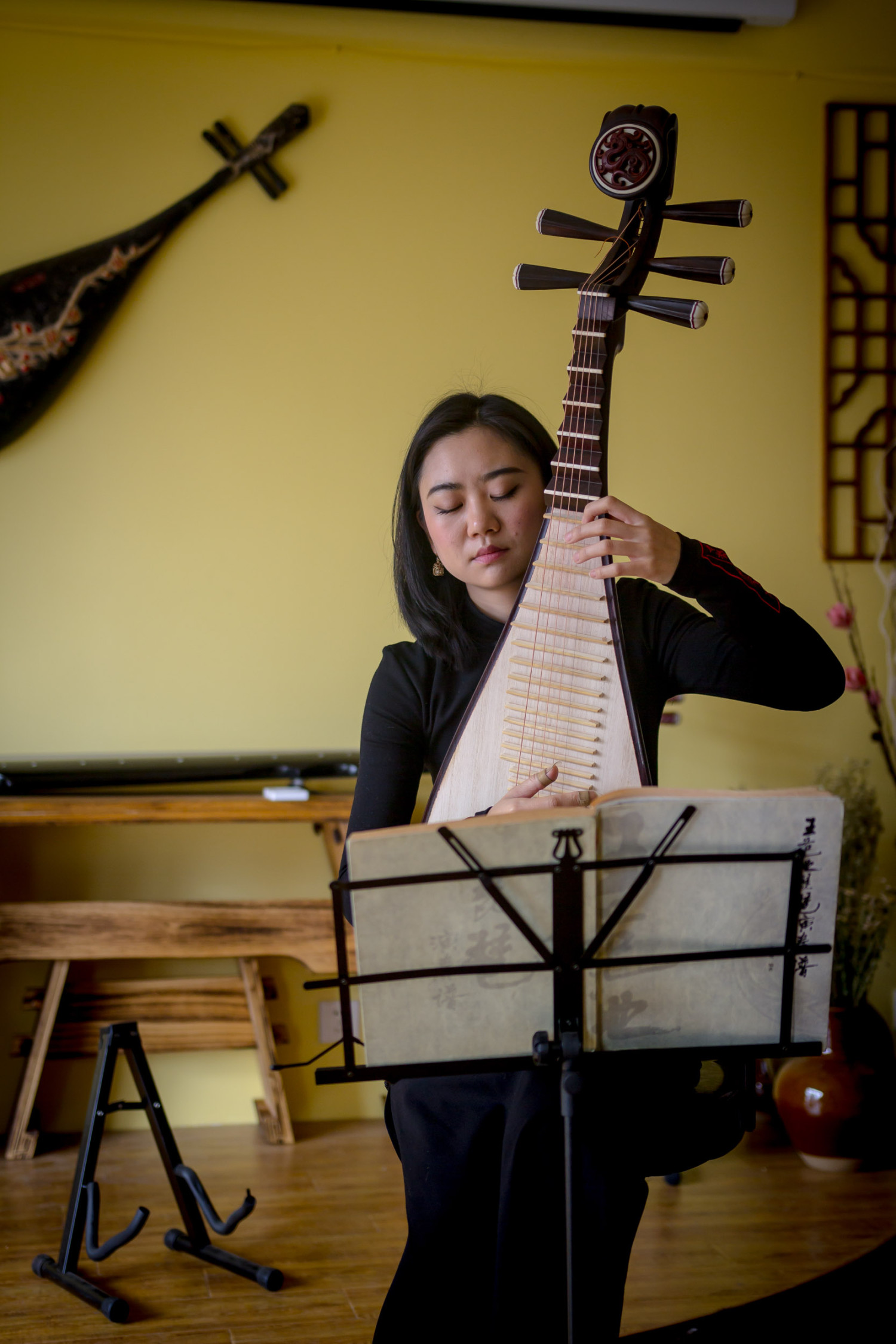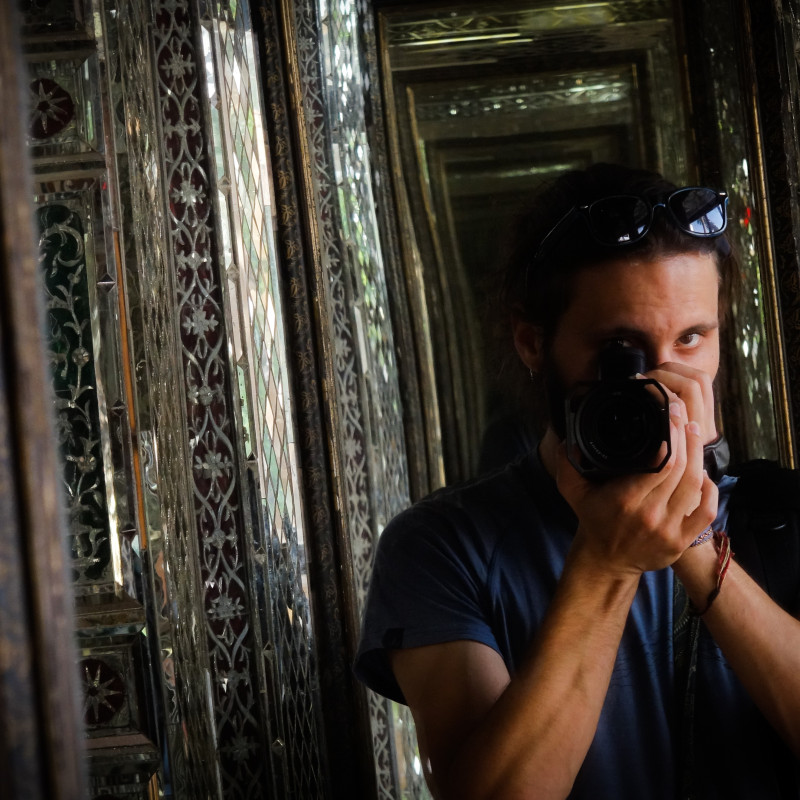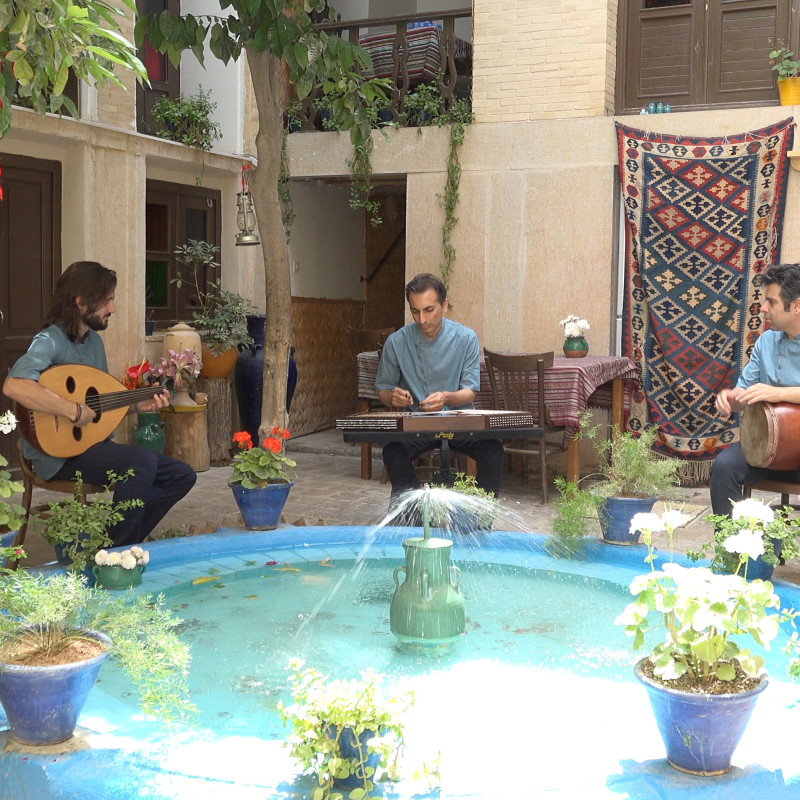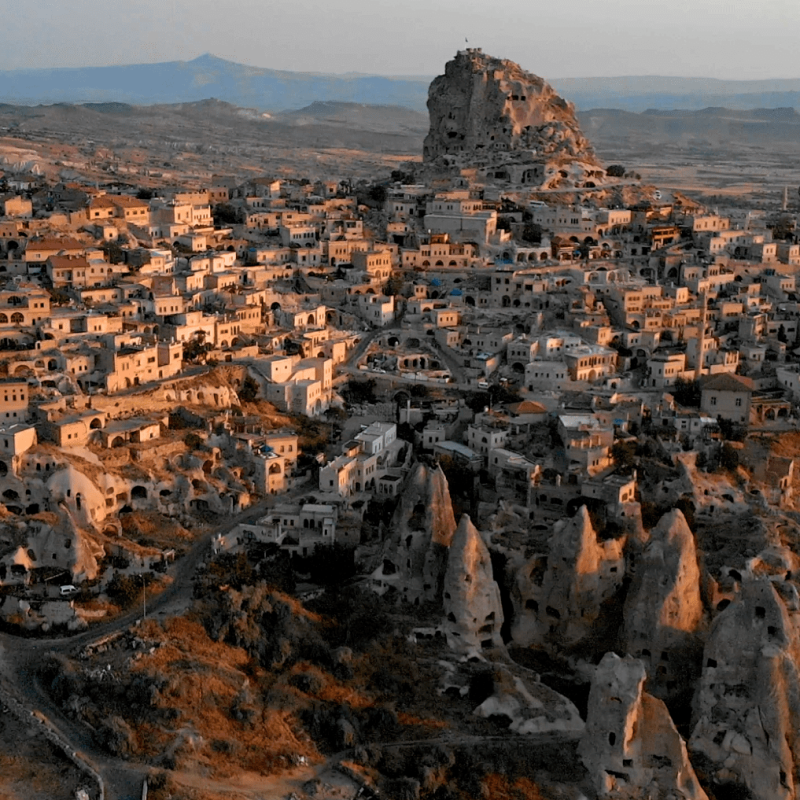Ibantuta
Musician, Filmmaker and Teacher : Exploring traditional music through transcultural collaborations
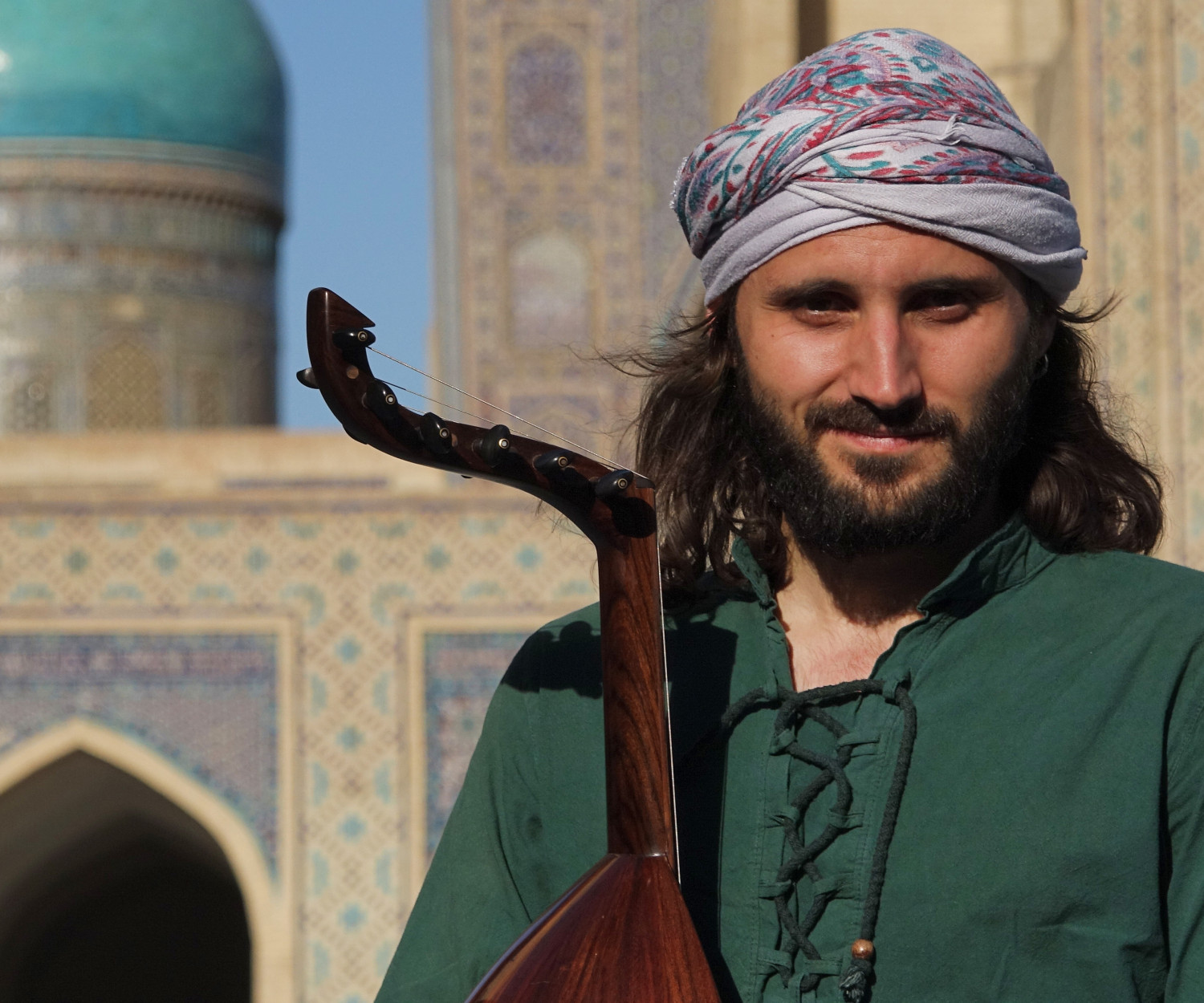
Weaving musical stories with the Oud
Ibantuta, a soulful musician and intrepid explorer, introduces a fresh perspective to the profound nature of traditional music through inspiring cross-cultural collaborations. With the enchanting melodies of the Oud as his guiding light, his artistic contributions bridge cultures, enrich lives, and elevate the human experience through his work as a musician, filmmaker, and teacher.
Originally from the Basque Country, Ibantuta's passion for the Oud was born in the heart of the Middle East, in Bahrain, where he discovered his instrument, ‘his companion’. Over the course of five enriching years under the tutelage of Iraqi Oud virtuoso, Saad Mahmood Jawad, Ibantuta acquired a strong foundation and passion for Arabian modal music. It inspired him to collaborate with modal musicians from diverse origins and to experience the beauty of creation in transcultural contexts.
Currently on tour for his debut album ‘The Musical Threads of the Silk Roads’, Ibantuta presents an exceptional solo performance, where the Oud takes centre stage against a backdrop of music videos he recorded during a year long musical exploration. His talent as storyteller and musician guides his audience on a unique sensory journey that is deeply moving and uplifting.
Ibantuta’s work inspires cross-cultural musical dialogues, while his music reveals that they are already inherently interconnected at their essence, illustrating traditional music’s ability to enhance and ultimately elevate us all.
Musical
Skills
Traditional musical instruments have always fascinated me. Their power lies in their ability to tell stories, express universal emotions, and connect people through music.
The primary instruments that resonate with me and that I teach are the Oud, the Setar and the Daf.
Oud
My journey began with an Iraqi Oud. It still accompanies me on my travels today. With its clear and brilliant sound, I find that it blends very well with harmonic instruments like the guitar or the piano. The musician who has inspired me the most on this type of Oud is undoubtedly my master, Saad Mahmood Jawad (Baghdad, 1973). He is part of the lineage of Iraqi soloists taught by the virtuoso Munir Bashir (Mosul, 1930 - Budapest, 1996).
The Turkish Oud is the perfect gateway to explore the richness of Ottoman classical music. The round and deep sound of my Turkish Oud, along with the repertoire of Makams from its original region, often transports me to meditative states. The musician who has inspired me the most on this type of Oud is Yurdal Tockan (Altinordu, 1966), whom I had the opportunity to meet during a Masterclass in Crete.
The Arabic Oud can be found in many regions of the Middle East and North Africa, as well as in some parts of South Asia. The nuances that exist, whether related to craftsmanship, ornamentation, or even variations in tonalities, distinguish the Oud within these regions. However, overall, it is an instrument frequently used for accompanying songs and for improvisations known as 'taksim.' The musician who has inspired me the most on this type of Oud is Ahmad Al-Khatib (Jordan, 1974).
Setar
Setar literally means 'three strings,' but nowadays, it has four. This mulberry wood instrument is one of the symbols of Persian music, particularly Sufi music. I take pleasure in singing while accompanying myself with its delicate and colorful sound. The Setar player who inspires me the most today is the Iranian, Masoud Shaari (Tehran, 1961).
Daf

The daf, known by various names such as def, defi, or dap, is a large frame drum originating from the Persian tradition. It is used to accompany Iranian music and is also commonly found (without its rings) in the Middle East and North Africa. I use this instrument in the context of Samâ, a form of spiritual music and meditative dance.
Filmmaking
Skills
From concept to capturing visuals, recording clean sound and post-production, I am committed to the seamless blending of visual art with the enchanting world of music in crafting truly unique sensory experiences. I enjoy showcasing the elevating power of music and capturing the radiant essence of the artists through music videos or and short films.
Whether it's for the creation of short films, music videos, or recording musical events, I would be delighted to put my skills at the service of your project.
Collaborations
I have had the opportunity to collaborate with many musicians across the world. These encounters fostered intellectual exchanges with musicians and ethnomusicologists, delving into the rich musical traditions and their impact on our evolution as human beings.
I want to pay tribute to all the musicians I've crossed paths with, to whom I am eternally grateful for the lessons they've imparted.
Azerbaijan
Munis Sharifov : Chagane
Sanubar Baghirova : Ethnomusicologist
Bahrain
Ahmed Maani : Daf and Riq, Ismail Gharib : Double Bass, Abdulla Haji : Clarinet
Saad Mahmood Jawad : Oud, Nedal Alkayeh : Oud, Carlos Villaroel : Bass
Omar Quraishi : Tabla, Ahmed Ghawas : Buzuki, Mike Zachariades : Bass
China
Mei Ling : Pipa
Chang Kai Yi : Guzheng & Teacher
Crete
Ross Daly : Contemporary Modal Music
Georgia
Davit Abramishvili : Chonguri, Zoé Perret : Vocals, Zura Andguladze : Vocals,
Giorgi Dzaganishvili : Vocals, Koka Khijakadze : Vocals, Ashiq Nargile : Saz
Rusudan Tsurtsunia : Doctor in History of Art
Ben Wheeler : Ethnomusicologist
Giorgi Abrashvili : Luthier
Bulat Khalilov : Journalist and Label Founder
India
Anshuman Maharaj : Sarod, Ram Mishra : Tabla
Wade Evans "Babaji" : Musician
Iran
Ali Yazdanpanah : Santoor, Mohammad Yazdanpanah : Tombak
Mehrdad Jeihooni : Tar, Shahriar Shokrani : Kemençe, Atousa Pourjohari : Bass Tar,
Soheila Baninajarian : Tombak, Fateme Sabet : Daf, Mehdi Rahmati : Santoor
Mehrdad Jeihooni : Museum Director
Mohammed Azadehfar : Ethnomusicologist
Hameed Haseli : Ethnomusicologist
Mohammed Mohammadi : Luthier
Kazakhstan
Ritta Urazgaliyeva : Qobyz, Beibarys Khamzin : Dombyra, Talgat Polatov : Accordeon
Mehdi Haddab : Musician
Mali
Cheick Diarra : Kora
Myanmar
Su Zar Zar : Saung & Doctor in Musicology
Russia
Inessa Nazarova : Piano
Turkmenistan
Myrat Gourbanov : Guitar, Ahmed Durdyev : Nay
Turkey
Elif Canfeza : Kemençe, Faruk Galiskan : Saz, Ahmet Altinkaynak : Nay
Uzbekistan
Sogdiana Orchestra with Qosim Nazarov Pozilovich : Rabab, Dilshodjon Meliboyev Alijonovich : Afghani Rabab, Bakhromov Shokhyorbek Shavkatbek : Gyjak, Islombek Abdulazizov Oybek : Double Bass, Abdullo Ubaydullayev Shukurullo : Doira, Sardor Primov Islom : Qoshnay, Bekzod Turaev Abdurashitovich : Nay
Firuza Ravshanovna Abdurakhimova : Conductor
